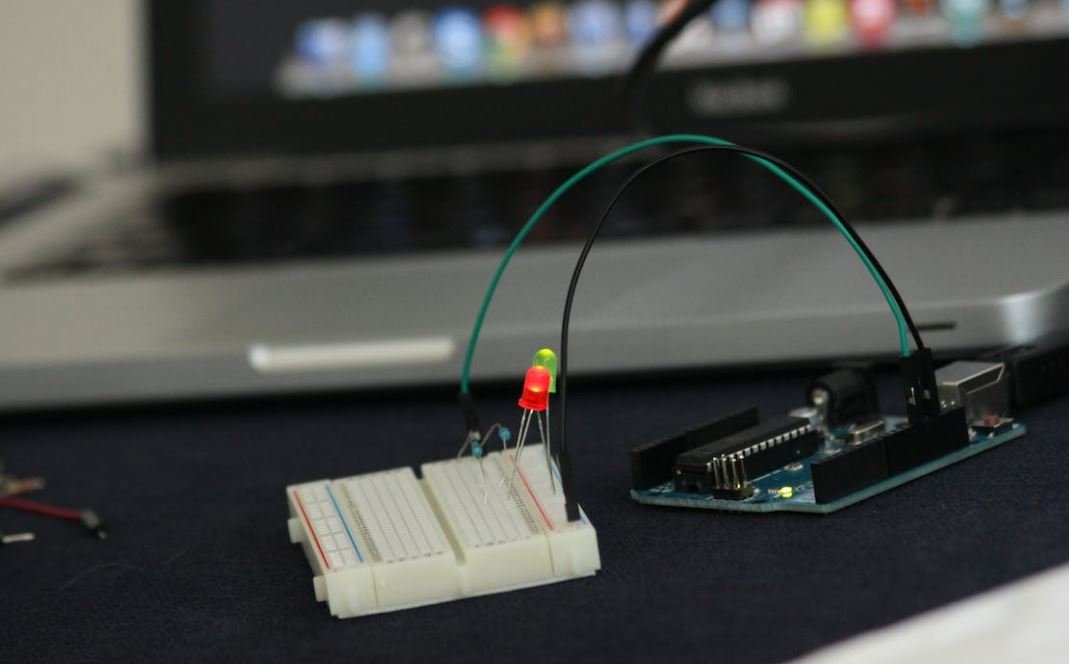AI Generated Clone Voice
In recent years, the development of AI technology has led to significant advancements in speech synthesis.
Thanks to artificial intelligence, it is now possible to create a voice that sounds almost identical to a
specific person or to generate entirely new voices that mimic human speech patterns and intonations. This
AI-generated clone voice technology has vast implications across various industries and has the potential
to reshape human-computer interactions as we know them.
Key Takeaways
- AI technology enables the creation of highly realistic clone voices.
- AI-generated clone voice technology has wide-ranging applications.
- There are concerns regarding the ethical use of clone voices.
Applications of AI-Generated Clone Voice
AI-generated clone voices have found numerous applications in industries such as entertainment, education,
and accessibility services.
- Entertainment: AI-generated clone voices have been used to bring deceased celebrities back to life in
films or to create voiceovers for characters in video games. - Education: Students can benefit from personalized audio lessons using clone voices tailored to their
preferences. - Accessibility Services: Individuals with speech impairments can utilize AI-generated clone voices to
communicate more effectively.
*One interesting aspect is that AI-generated clone voices can be trained in multiple languages,
significantly expanding their applicability.
Ethical Considerations
While AI-generated clone voices offer exciting possibilities, they also raise ethical concerns.
- Identity Theft: Misuse of clone voices could lead to impersonations and fraudulent activities.
- Privacy Concerns: Replicating someone’s voice using AI raises questions about consent and data
security. - Trustworthiness: The widespread use of clone voices could erode public trust as it becomes challenging
to differentiate between real and synthetic voices.
*It’s vital to establish regulations and ethical frameworks to ensure responsible use of clone voice
technology.
Advancements and Limitations
Researchers continue making advancements in AI-generated clone voice technology, but there are still some
limitations.
Table 1: Comparison of AI-Generated Clone Voice Advancements
| Advancements | Limitations |
|---|---|
| Highly realistic voices | Imperfect pronunciation in certain languages |
| Expanded language support | Difficulties with capturing emotional nuances consistently |
| Improved voice customization | Voice cloning may require a significant amount of training data |
Future Implications
As AI-generated clone voice technology continues to advance, the future implications are vast and
transformative.
- Enhanced Human-Computer Interactions: Clone voices can create more engaging and personalized
interactions with AI-powered systems. - Preserving Cultural Heritage: Historical figures’ voices could be replicated, allowing future
generations to hear their speeches and stories. - Virtual Assistants and Chatbots: AI-generated clone voices could enhance the user experience,
establishing a stronger emotional connection between users and AI-based assistants.
*The potential for AI-generated clone voices is limitless, as technology continues to evolve rapidly.
Regulatory Measures and Responsible Use
To ensure the responsible use of AI-generated clone voices, regulatory measures and guidelines need to be
established to safeguard against potential abuses.
Table 2: Existing Regulatory Approaches
| Country | Regulatory Approach |
|---|---|
| USA | Limited regulation, mainly focused on data privacy and protection |
| EU | Stricter regulations to protect privacy and limit potential misuse |
| China | Regulations primarily focused on data privacy and national security |
Conclusion
AI-generated clone voices have the potential to revolutionize various industries and transform human-computer
interactions. While ethical concerns and limitations remain, the ongoing advancements and increasing
regulations signify a future where clone voices become an integral part of our technological landscape.

Common Misconceptions
AI Generated Clone Voice is Perfectly Indistinguishable
One common misconception about AI generated clone voice technology is that it can produce voices that are perfectly indistinguishable from real human voices. While AI has made impressive progress in generating human-like speech, it is still not perfect and can have some subtle differences that trained human ears can identify.
- AI generated clone voices can sound very similar to real human voices, but they often lack the emotional nuances and intonations that come naturally to humans.
- Listening carefully can reveal small irregularities or robotic tones in AI generated clone voices.
- Speech patterns and pauses may also be different, making it possible for a trained ear to spot the difference between a real human voice and an AI generated clone voice.
AI Generated Clone Voice Technology Can Be Used to Fake Anything
Another misconception is that AI generated clone voice technology can be used to fake any kind of voice recording or conversation. While AI can mimic certain voices or create new ones based on existing data, it cannot be used to perfectly replicate any voice or create completely fictional voices.
- AI generated clone voice technology requires a large amount of training data for each voice it aims to replicate, making it impractical to fake just any voice effortlessly.
- Creating a voice that does not already exist in the training data is currently not possible, as AI relies on existing samples to generate new voices.
- AI generated clone voice technology also cannot replicate the unique characteristics and quirks of individuals that make their voices truly distinct.
AI Generated Clone Voice Can Be Impossibly Fast
There is a misconception that AI generated clone voice technology can generate a perfect voice clone in a matter of seconds or even instantly. While AI has made significant advancements in speech synthesis, creating a convincing voice clone still takes time and considerable resources.
- Training an AI model to generate a high-quality voice clone requires a substantial amount of data and computing power.
- The training process involves multiple iterations and adjustments to refine the voice clone.
- Generating a voice clone with a high degree of quality and accuracy can take hours or even days, depending on the complexity of the target voice.
AI Generated Clone Voices Will Replace Human Voice Actors
Many people have the misconception that AI generated clone voices will replace human voice actors in various industries. While it is true that AI has the potential to automate certain tasks, it is unlikely to completely replace human voice actors in creative industries where human expression and nuance are highly valued.
- Human voice actors possess unique talents and artistic interpretations that AI cannot replicate.
- Human voice actors can adapt and improvise based on specific directions or feedback, whereas AI generated clone voices lack the ability to respond dynamically.
- Emotional connection and authenticity are vital in voice acting, and human performances are often preferred for capturing these qualities.
AI Generated Clone Voices are Always Used for Malicious Purposes
There is a common misconception that AI generated clone voices are primarily developed and used for malicious purposes, such as fraud or deception. While there have been cases of AI-generated voice impersonation used for fraudulent activities, such as voice phishing, the technology has genuine applications beyond malicious intent.
- AI-generated voice technology has valuable applications in industries like entertainment, gaming, and customer service, where it can enhance user experiences and make interactions more engaging.
- Potential applications also include voice synthesizers for individuals with speech disorders or assistive technologies for the visually impaired.
- While the ethical use of AI-generated voice technology is an important concern, it is crucial to recognize its positive potential as well.

Overview of AI Generated Clone Voice
Artificial intelligence has made significant advancements in various fields, and one intriguing development is the generation of clone voices. These AI-generated voices have the ability to mimic and replicate human speech patterns with astounding accuracy. This article explores ten fascinating points about AI-generated clone voices and the impact they have on communication and technology.
1. The Rise of AI-Generated Clone Voices
In recent years, AI technology has advanced to a point where it can create highly realistic clone voices. These voices are generated by powerful algorithms that analyze large datasets of human speech, enabling machines to replicate speech patterns, intonations, and even unique voice qualities.
2. Variety of Voice Cloning Applications
The applications of AI-generated clone voices are vast and diverse. From enhancing accessibility for individuals with speech impairments to creating natural-sounding virtual assistants and voiceovers, the technology has endless possibilities.
3. Indistinguishable from Real Voices
AI-generated clone voices have reached a level of accuracy where they can be indistinguishable from real human voices. With the ability to mimic subtle nuances and emotions, these voices are challenging to differentiate from genuine recordings.
4. Ethical Concerns
The rise of clone voices raises ethical concerns. As the technology progresses, potential misuse and misinformation become significant risks. Ensuring responsible use, protecting individuals’ privacy and consent, and guarding against voice manipulation are vital considerations.
5. Voice Banking for Preservation
Voice banking offers a unique advantage for individuals who may lose their ability to speak due to illness or injury. AI-generated clone voices can assist in preserving and reproducing an individual’s unique voice, providing comfort and maintaining their identity.
6. Role in Film and Entertainment
The entertainment industry can benefit greatly from AI-generated clone voices. This technology can bring back iconic voices from the past, seamlessly continuing their legacy in films, video games, and other media forms.
7. Enhancing Human-Machine Interaction
Developing clone voices for virtual assistants and chatbots enhances the user experience, making human-machine interaction more natural and engaging. These voices evoke a sense of familiarity and empathy, improving communication between individuals and AI systems.
8. Limitations and Imperfections
Although AI-generated clone voices have come a long way, they still face certain limitations and imperfections. Generating convincing clone voices for languages with complex phonetic structures or for individuals with unique accents remains a challenge.
9. Technical Advancements
The continued advancement of AI technology will lead to even more realistic and accurate clone voices. Improvements in neural networks, deep learning algorithms, and voice synthesis techniques will push the boundaries of what is possible in voice replication.
10. Implications for Identity and Authenticity
AI-generated clone voices raise profound questions about identity and authenticity. As technology enables the replication of voices to a near-perfect degree, it challenges traditional notions of what makes an individual’s voice unique and genuine.
In conclusion, AI-generated clone voices have revolutionized the field of voice synthesis, bringing both excitement and ethical considerations. The ability to replicate human speech with remarkable accuracy has numerous applications, from accessibility to entertainment. Although challenges remain, the continued development of this technology will undoubtedly shape the way we communicate and interact with machines in the future.
Frequently Asked Questions
1. What is AI Generated Clone Voice?
AI Generated Clone Voice refers to the technology that uses artificial intelligence algorithms to replicate and mimic a person’s voice or create an imitation of someone’s speech patterns and vocal characteristics.
2. How does AI Generated Clone Voice work?
AI Generated Clone Voice works by analyzing a large dataset of recordings and utilizing deep learning algorithms to understand the patterns and nuances in the voice. These algorithms then generate new audio that imitates the voice of the person the system is trained on.
3. What are the applications of AI Generated Clone Voice?
AI Generated Clone Voice has various applications such as in voice assistants, audiobooks, dubbing, voice-over recordings, personalized voice services, and even for entertainment purposes like creating voice avatars.
4. Can AI Generated Clone Voice be used for malicious purposes?
While AI Generated Clone Voice has many advantages, it can also be misused for harmful activities like impersonations, voice fraud, or misleading individuals. It is essential to consider ethical guidelines and ensure proper usage to avoid malicious applications.
5. Is AI Generated Clone Voice indistinguishable from real human voices?
In some cases, AI Generated Clone Voice can produce human-like voices that are difficult to differentiate from real human voices. However, the technology is continually evolving and may still have certain imperfections that can potentially give away its synthesized nature.
6. How accurate and reliable is AI Generated Clone Voice?
The accuracy and reliability of AI Generated Clone Voice systems can vary based on the quality and quantity of data available for training, the complexity of the voice being cloned, and the sophistication of the algorithms used. Significant improvements have been made, but there may still be limitations.
7. Are there any privacy concerns associated with AI Generated Clone Voice?
Yes, privacy concerns can arise with AI Generated Clone Voice technologies. As these systems require access to a person’s voice recordings, protecting the privacy and security of such data becomes crucial. There is a need to establish regulations and frameworks to ensure proper usage and prevent potential misuse.
8. How can AI Generated Clone Voice benefit individuals and businesses?
AI Generated Clone Voice can benefit individuals and businesses by providing personalized voice services, creating engaging voice content, enhancing customer experiences, enabling better accessibility for individuals with speech impairments, and streamlining voice-related tasks in various industries.
9. Will AI Generated Clone Voice replace human voice actors or professionals?
AI Generated Clone Voice is not designed to replace human voice actors or professionals. It can be seen as a complementary tool that can assist in certain situations, but human creativity, emotion, and interpretation are irreplaceable elements that make human voices unique and valued in many aspects.
10. How can I determine if a voice I hear is AI Generated Clone Voice?
Determining if a voice is AI Generated Clone Voice can be challenging, especially as the technology continues to advance. However, some telltale signs may include a lack of natural variation, subtle artifacts, or anomalies that a human voice wouldn’t typically exhibit. However, it’s important to note that these signs may not always be present, and some systems can produce highly convincing imitations.




